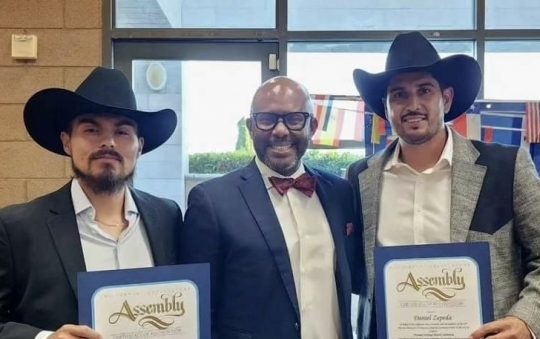
Author, Gwyn Görg’s most recently published book, “I Am Bigger Than Nigger” is a book of essays, narratives, prose and poetry, highlighting the depth of her journey as a Black woman growing up during the bigoted civil rights era, providing a closer look at the African American experience. Despite the racial attacks, Görg says African Americans shouldn’t allow others to define who they are, individually or collectively.
According to Görg, the use of the word nigger causes disagreement among Blacks. Many from the older generations state that the word shows disrespect to the ancestors of African American descent, who were abused and robbed of their innate cultures and languages; they resentfully submitted to the labels they were given for fear of violent reprisal. But Görg says “today’s Black youth, even some other ethnicities, have co-opted the word, diffused some of its sting and use it as a friendly greeting or even in their musical offering. “What younger people have done is to take this word, with its horrible references, and change it to a newer definition. I say, ‘hats off to them.’
“No one defines, me … as I recognize that, only I have power over my thoughts, words or deeds, I become the master of me! I encourage Black people to read the book before they allow their emotions to override their rationale.” ” said Görg.
She says growing up Black in Los Angeles and graduating from John C. Fremont High School in South Central L.A. in the 1950’s, the Black community knew of the potential dangers had they ventured to Culver City, Glendale, Gardena or other suburbs of Los Angeles after 9 p.m., where there were active Klu Klux Klan groups.

“In the early 60s, we, in the Civil Rights Movement were protesting for equal housing. In Torrance, signs were posted; no dogs, Mexicans or NIGGERS,” she said. Görg recalls her sister and brother-in-law, who were both professionals, had a cross-burned on their lawn in the city of Westchester. “In Westwood, as I pulled into a parking space, a convertible with six Caucasian members of the UCLA football team yelled, ‘Nigger, you better not park there!’”
Görg says she grew up with so much racial disrespect that it provided her with a unique opportunity to re-examine her personal connection with herself and that dreadful word. She says some of the poetry, essays and short stories in the book highlight the roles, aggression, victimization, and violence Black cultures around the world have endured.“The ability to love one-self in spite of pejorative slurs is a challenge many are faced with. ‘I Am Bigger Than Nigger’ provides an opportunity for objective discussions where various abuses are shared,” she said. “My book points out the fact that we must define ourselves and not allow anyone but ourselves to do so,” she said.
Görg shared that some people have communicated their disappointment in the title, but once they have read it, they have returned to thank and congratulate her.“I wrote this book because as a Black woman, I felt a responsibility to bring more attention to some of our histories by using narratives, prose and poetry to entice readers.“The title will draw attention to invoke curiosity and hopefully inspire discussions. If conversation can be encouraged, perhaps it can be a catalyst to prevent hardship, pain and more violence.”

She recited a stanza from her book:
“I get to be me
Brown skinned beauty
A coffee colored skin
With two drops of coconut cream
Sweet caramel and a touch of heat
Offering a warm heart open to all.”
For more information on Ms. Görg or “I Am Bigger Than Nigger,” visit www.gwyngorg.com
*This story has been updated with addition photos, captions and corrected text.






